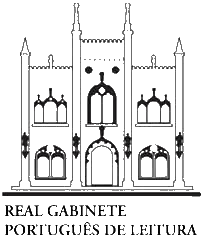Em busca de um lugar perdido: Guiomar Torrezão, voz e opinião
DOI:
https://doi.org/10.37508/rcl.2022.n48a493Palavras-chave:
persona, autoria feminina, emancipação feminina, romance oitocentistaResumo
Guiomar Torrezão (1844-1898) foi uma das primeiras escritoras portuguesas a fazer da carreira jornalística e literária o seu ganha-pão. Desde os seus primeiros textos, é clara a sua intenção de construir uma voz firme e impositiva, que não sofra das (falsas) modéstias tão comuns a outras vozes femininas e que não se suplicie pela incipiência dos seus conhecimentos. É forte também a sua presença autoral, e óbvio o desejo de criar um espaço para si própria e para a sua obra entre a literatura e a crítica portuguesas. Neste artigo, procurarei explorar como, porém, esta ousadia profissional não se traduz necessariamente na subversão dos lugares-comuns que o meio intelectual português perpetua relativamente às mulheres, nem num desejo explícito e claro de lutar pela emancipação feminina.
Downloads
Referências
ALMEIDA, Fialho de. Figuras de Destaque (Livro Póstumo). Lisboa: Livraria Clássica Editora de A. M. Teixeira e C.ª, 1923. p. 187-195.
ALONSO, Cláudia Pazos. Modernity in the Making: the women at the heart of A Voz Feminina and O Progresso. In: VILELA, Ana Luisa; SILVA, Fabio Mario; DAL FARRA, Maria Lúcia (ed). O Feminino e o Moderno. Lisboa: CLEPUL, 2017, p. 37-57.
CASTRO, Zília Osório de; ESTEVES, João Esteves (dir.). Dicionário no Feminino (Séculos XIX-XX). Lisboa: Livros Horizonte, 2005. p. 379-383.
CUNHA, Sílvia Marisa. Guiomar Torrezão e a inscrição ficcional do diário: Uma arte discreta da transgressão. In: PINHEIRO, Cristina Santos; EMONTS, Anne Martina; FRANCO Maria da Glória; BEJA, Maria João (coord.). Mulheres: Feminino, Plural - Colóquio Internacional “A mulher em debate: passado-presente”. Lisboa: Nova Delphi, 2014. p. 175-185.
KAMITA, Rosana Cássia. Revista “A Mensageira”: alvorecer de uma nova era?. Revista Estudos Feministas: Número especial – Publicações Feministas, Florianópolis, n. 12, p. 164-168, 2004. Disponível em: https://doi.org/10.1590/S0104-026X2004000300018. Acesso em: 20 set. 2022. DOI: https://doi.org/10.1590/S0104-026X2004000300018
NÓVOA, António. Dicionário de Educadores Portugueses. Lisboa: Edições ASA, 2003. p. 1383-1384.
TORREZÃO, Guiomar. Meteoros. Lisboa: Typographia de Christóvão A. Rodrigues, 1875.
TORREZÃO, Guiomar. Rosas pálidas: narrativas originais, 2. ed. Porto: Livraria Portuense – Editora, 1877 [1873].
TORREZÃO, Guiomar. No teatro e na sala. Lisboa: David Corazzi – Editor, Empreza das Horas Românticas, 1881.
TORREZÃO, Guiomar. Idílio à Inglesa (contos modernos). Lisboa: Livraria Ferreira, 1886.
TORREZÃO, Guiomar. As batalhas da vida. Lisboa: Livraria de António Maria Pereira, 1892.
TORREZÃO, Guiomar. Flávia. Lisboa: Livraria Ferin, 1897.
Downloads
Publicado
Como Citar
Edição
Seção
Licença
Os autores que publicam nesta revista concordam com os seguintes termos:
a. Autores mantêm os direitos autorais e concedem à revista o direito de primeira publicação, com o trabalho simultaneamente licenciado sob a Licença Creative Commons Atribuição NãoComercial (CC-BY-NC 4.0) que permite o compartilhamento do trabalho com reconhecimento da autoria e publicação inicial nesta revista.
b. Autores têm autorização para assumir contratos adicionais separadamente, para distribuição não-exclusiva da versão do trabalho publicada nesta revista (ex.: publicar em repositório institucional ou como capítulo de livro), com reconhecimento de autoria e publicação inicial nesta revista.
c. Autores têm permissão e são estimulados a publicar e distribuir seu trabalho online (ex.: em repositórios institucionais ou na sua página pessoal) a qualquer ponto antes ou durante o processo editorial, já que isso pode gerar alterações produtivas, bem como aumentar o impacto e a citação do trabalho publicado.

A Revista Convergência Lusíada utiliza uma Licença Creative Commons - Atribuição-NãoComercial 4.0 Internacional.









